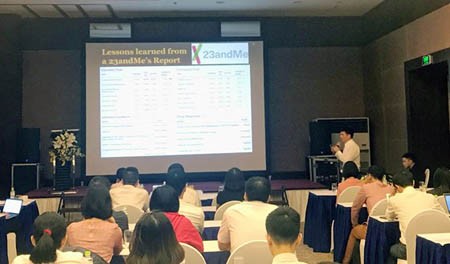
This has been the largest-scale project in the whole South-east region ever in the hope to create the greatest database of genetic variations and to become the foundation for other similar local as well as global research on the Vietnamese genome. It will receive the investment of up to $4.5 million.
The project is expected to form a database system to warn about as well as provide early treatment for certain diseases. It is also used to develop diagnosis methods and disease treatments for each individual thanks to the analysis of the whole genome of 1,000 Vietnamese.
In the first phase, which lasts 3 years, scientists will collect samples from 1,000 Vietnamese participants. They will then cooperate with partners from the US, Germany, Singapore, and Japan to decode and analyze those genomes, followed by the construction of the database of genetic variations in the Vietnamese population.
From this database, scientists will be able to create genetic variation panels for reference and correlation research on the whole genetic system, on genetic diseases, and on pharmacogenomics (PGx).
Because of the large amount of information after the decoding process, this database needs hundreds of Terabytes for storage. Therefore, Vingroup is going to invest on modern analysis systems as well as Big Data storage systems in order to meet the above requirement.
According to Professor Vu Ha Van, Scientific Director of the Institute of Big Data, this project is not only a premise for the next phase but also a foundation for other genetic research in Vietnam. This complicated and money-intensive project will no doubt contribute substantially to genetic research in the country.
In the second phase, the project will mostly focus on correlation research on the whole genetic system in order to develop testing methods for certain genetic diseases as well as negative reactions of medicine.
At the moment, researchers of the project are collaborating with their counterparts in the US, Germany, and Japan. Regarding PGx, researchers are cooperating with others in the South-east region under the project ‘1,000 Pharmacogene Resequencing’, where Singapore, Thailand, Japan are the pioneers in clinical implementation of the field.
To ensure the success of the project, the new version of genome decoding process from Illumina has been applied. In addition, the connection with international experts of the field will help build the capable human resources for biomedical research, genetic research, while encouraging domestic scientists to approach newest research methods in accordance with international standards.
The project is expected to have prominent effects on various fields, including healthcare, pharmacy, biotechnology, anthropology.
























